
Kód: 01322620
Which Rights Should Be Universal?
Autor William Talbott
"We hold these truths to be self-evident..." So begins the U.S. Declaration of Independence. What follows those words is a ringing endorsement of universal rights, but it is far from self-evident. Why did the authors claim that it ... celý popis
- Jazyk:
 Angličtina
Angličtina - Vazba: Brožovaná
- Počet stran: 256
Nakladatelství: Oxford University Press Inc, 2007
- Více informací o knize

Mohlo by se vám také líbit
-

Fatherhood
5652 Kč -

Eat Well Cookbook
698 Kč -

30-Second Astronomy
403 Kč -

Woodland Knits
463 Kč -

Inventory Arousal
293 Kč -

Vzhůru dolů
141 Kč -

Die Lebenden und Toten von Winsford
273 Kč
Darujte tuto knihu ještě dnes
- Objednejte knihu a zvolte Zaslat jako dárek.
- Obratem obdržíte darovací poukaz na knihu, který můžete ihned předat obdarovanému.
- Knihu zašleme na adresu obdarovaného, o nic se nestaráte.
Více informací o knize Which Rights Should Be Universal?
Nákupem získáte 183 bodů
 Anotace knihy
Anotace knihy
"We hold these truths to be self-evident..." So begins the U.S. Declaration of Independence. What follows those words is a ringing endorsement of universal rights, but it is far from self-evident. Why did the authors claim that it was? William Talbott suggests that they were trapped by a presupposition of Enlightenment philosophy: That there was only one way to rationally justify universal truths, by proving them from self-evident premises. With the benefit of hindsight, it is clear that the authors of the U.S. Declaration had no infallible source of moral truth. For example, many of the authors of the Declaration of Independence endorsed slavery. The wrongness of slavery was not self-evident; it was a moral discovery. In this book, William Talbott builds on the work of John Rawls, Jurgen Habermas, J.S. Mill, Amartya Sen, and Henry Shue to explain how, over the course of history, human beings have learned how to adopt a distinctively moral point of view from which it is possible to make universal, though not infallible, judgments of right and wrong. He explains how this distinctively moral point of view has led to the discovery of the moral importance of nine basic rights. Undoubtedly, the most controversial issue raised by the claim of universal rights is the issue of moral relativism. How can the advocate of universal rights avoid being a moral imperialist? In this book, Talbott shows how to defend basic individual rights from a universal moral point of view that is neither imperialistic nor relativistic. Talbott avoids moral imperialism by insisting that all of us, himself included, have moral blindspots and that we usually depend on others to help us to identify those blindspots. Talbott's book speaks to not only debates on human rights but to broader issues of moral and cultural relativism, and will interest a broad range of readers.
 Parametry knihy
Parametry knihy
Zařazení knihy Knihy v angličtině Society & social sciences Politics & government Political control & freedoms
1834 Kč
- Plný název: Which Rights Should Be Universal?
- Autor: William Talbott
- Jazyk:
 Angličtina
Angličtina - Vazba: Brožovaná
- Počet stran: 256
- EAN: 9780195331349
- ISBN: 0195331346
- ID: 01322620
- Nakladatelství: Oxford University Press Inc
- Hmotnost: 338 g
- Rozměry: 161 × 234 × 14 mm
- Datum vydání: 21. June 2007
Oblíbené z jiného soudku
-

Nothing To Envy
265 Kč -

So You Want to Talk About Race
373 Kč -
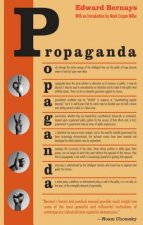
Propaganda
401 Kč -

Manufacturing Consent
357 Kč -

In Order To Live
316 Kč -

Long Walk To Freedom
420 Kč -

The Gulag Archipelago, 1918-1956
465 Kč -

The Gulag Archipelago, 1918-1956
439 Kč -

On Palestine
369 Kč -

The Gulag Archipelago
410 Kč -
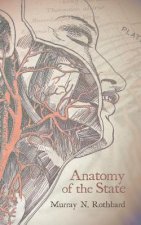
Anatomy of the State
307 Kč -
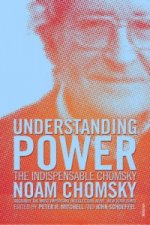
Understanding Power
464 Kč -

Parkland: Birth of a Movement
464 Kč -

Suffragettes
90 Kč -

Media Control - Post-9/11 Edition
223 Kč -

Beyond Chutzpah
1021 Kč -

Palestine in Israeli School Books
1055 Kč -

Citizenship
384 Kč -

Stromaufwärts zur Quelle
481 Kč -

Christianity and Human Rights
1165 Kč -

New Jim Crow
303 Kč -

Inventing Human Rights
377 Kč -

Gift of Love
276 Kč -

Commissar Vanishes
684 Kč -

Gulag Archipelago
464 Kč -

On Liberty
276 Kč -
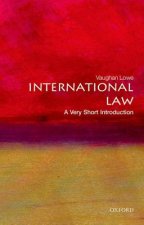
International Law: A Very Short Introduction
265 Kč -

Human Rights: A Very Short Introduction
265 Kč -
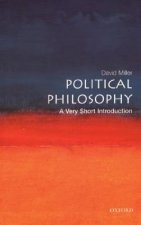
Political Philosophy: A Very Short Introduction
265 Kč -

Red Horizons
473 Kč -

Cultural Cold War
486 Kč -
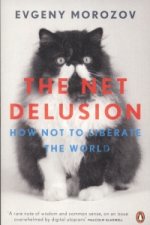
The Net Delusion
303 Kč -

How Propaganda Works
515 Kč -

Creating Capabilities
597 Kč -
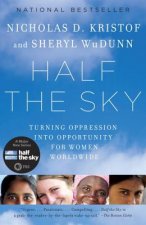
Half the Sky
358 Kč -

Rights of Man
196 Kč -
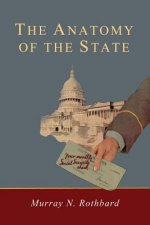
Anatomy of the State
202 Kč -

Constructing Cassandra
1036 Kč -

I Have a Dream
394 Kč -
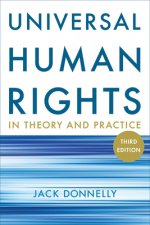
Universal Human Rights in Theory and Practice
911 Kč -

Legitimacy of International Human Rights Regimes
1259 Kč -

New World of Indigenous Resistance
474 Kč -

Fear No Evil
472 Kč -

Handbook of Tyranny
829 Kč -
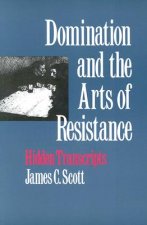
Domination and the Arts of Resistance
604 Kč -

Desert and the Sea
303 Kč -

In Harm's Way
1744 Kč -

Witness for the Defense
547 Kč -

Zinnophobia
1003 Kč
Osobní odběr Praha, Brno a 12903 dalších
Copyright ©2008-24 nejlevnejsi-knihy.cz Všechna práva vyhrazenaSoukromíCookies



 Vrácení do měsíce
Vrácení do měsíce 571 999 099 (8-15.30h)
571 999 099 (8-15.30h)